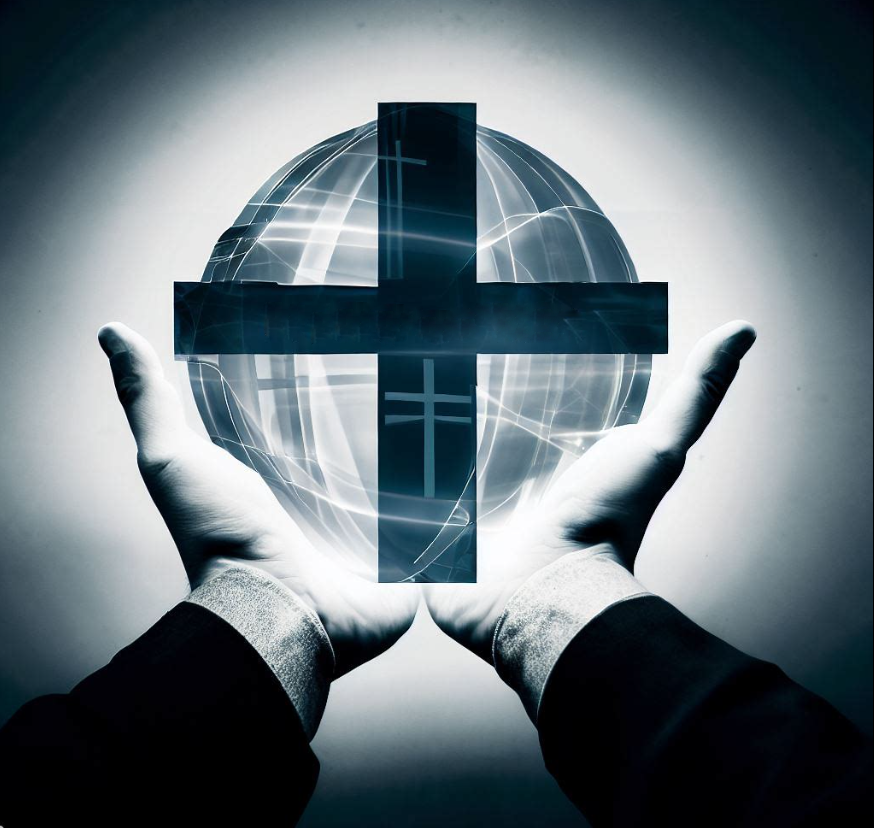
Faith plays a critical role within the realm of politics, with Christian beliefs and principles being instrumental in molding the shape of the modern political sphere. From the drafter striding the corridors of power, whose pen scribbles out the future of nations, to the citizen standing in the ballot box, consciously or otherwise, their decisions are often guided by an underlying code of Christian ethics and mores. This indirect influence of faith-based beliefs champions the liberal…
This implies that Christian values, and by extension faith, act as a foundational bedrock for societal structures. They find projection on the expansive canvas of politics, in the variegated hues of myriad distinct ideologies. One such political ideology shaped by Christian ethics is the concept of social justice. Echoing the Christian virtues of love and compassion, this ideology propounds the importance of welfare for the less fortunate or oppressed segments of our society.
This principle, deeply rooted in Christian teachings, finds an echo in the vociferous advocacy for social welfare, equality, and human rights prevalent in the political discourse. These political ideologies, propelled by a moral compass directed towards humanity’s betterment, owe their genesis to Christian doctrines.
The political spectrum’s conservative wing often finds an overlap with the Christian ethos, particularly when deliberations veer towards ethically sensitive issues like abortion or euthanasia. Here, the Christian tenet advocating respect for life is mirrored in these political stances, showcasing again the indirect faith-based influence on the political sphere.
The realm of politics isn’t a simple arena where Christian principles find unopposed expression. It provides an intriguing mélange of political viewpoints, an impressive tapestry woven from different ideological threads. Christianity’s impact on politics isn’t a solitary or unilateral happenstance but rather an intricate interplay, a ceaseless dance between faith and politics.
This dance subtly blends spiritual beliefs with an array of political perspectives, with the beat of conviction and the rhythm of pragmatism. As the grand theatre of politics plays out across nations and epochs, the influence of faith and, in particular, Christianity, remains undisputed, underpinning and shaping the course of political history. Its indirect but persistent influence allows for a unique, dynamic interplay that shapes societal attitudes and governmental policies. Supplements borrowed from Christian ethics give political ideologies a depth and character that play a key role in political discourse. This interplay beautifully illustrates the symbiotic relationship between religion and politics, underscoring faith’s continuing relevance in the tumultuous arena of political discourse.
Christianity as a Political Identifier
Expanding on this rather intriguing notion of Christianity as a political identifier, it’s evident that the intersections between faith and politics are much more complex and conspicuous in democratic societies than originally presumed. The very essence of Christianity and the moral commandments of this faith significantly contribute to the forging of political alliances, driving voter behavior, and affecting the political orientation of many individuals.
Political parties that hold significant sway over the political landscape and public opinion resort to employing religious undertones and motifs while crafting their policies or propagating their public personas. The rationale behind this can be traced back to the aim of resonating with their prospective voters’ religious beliefs, core values, and collective aspirations. It is not uncommon for certain aspects such as religious affiliations and interpretations of biblical doctrines to surface as major factors that sway public opinion during intense election periods. Using the Christian faith as a tool to garner popularity and project an image of trustworthiness has become a milestone in contemporary politics.

The Christian faith doesn’t just serve as a political identifier on the personal level or within the confines of domestic politics; its influence is equally impactful on a larger, international scale. Indeed, the correlation of faith and politics isn’t only limited to predetermined national boundaries, but it also overflows into the sphere of international relations, diplomacy, and shaping geopolitical strategies.
The stance taken by a nation on key global issues or disputes, decisions revolving around forging or severing diplomatic ties, and devising strategies to improve geopolitical advantages are often guided by that nation’s entrenched Christian beliefs and principles. Such examples validate the overarching influence of Christian values not just in the personal ideological domain but also in shaping socio-political landscapes and interstate relations at a global level.
The role of Christianity as a political identifier cannot be undermined considering how it has instrumentalized faith, extending its divine virtues as a socio-political tool, apparent in the political dynamics of numerous nations. The ongoing dialogue between faith and politics, with Christianity as its blueprint, could present opportunities and challenges alike in our attempt to grapple with the ever-complex political environment.
Evaluating the Implications of Christianity's Role in Politics
Understanding the impact of Christianity’s role in politics begins with observing how it unfolds in different political scenarios and social contexts. The potential implications arise from the profound way faith-based principles shape societal norms and contribute to the legislative processes. Christianity or any faith impacting politics could give rise to legitimate concerns, particularly as ideologies founded on religious teachings may jeopardize the secular principles that underpin many democratic governments.
The challenge then is to strike an optimal balance. The ideal would be to uphold the value of religious diversity and the freedom of individual belief, ensuring in tandem that such aspects do not impinge on objective, principled decision-making within the political sphere. To this end, engaging in ongoing dialogue, open debate and regular assessment helps societies navigate through the complexities of politically charged religious nuances with efficiency and empathy.
From a historical perspective, it is crucial to note that the influence of Christianity is broad and multifaceted, extending far beyond moral and ethical dimensions. It plays into the wider dynamics of society and governance in ways both subtle and profound, shaping economic policies, welfare decisions and more. The recent societal campaigns for social justice, be it racial, economic or environmental, can be seen as the veritable manifestation of Christianity’s enduring influence.
This context underscores the objective of this article, which is to provide a comprehensive understanding of the complex interface between Christianity and politics. Acknowledging the role that faith plays in modern politics is pivotal when it comes to policy formulation. It allows for a more nuanced view of the motivations that drive political decisions and debates.
Drawing from diverse sources and observing the trends, this article also underscores the intricate interactions that exist between Christianity and contemporary politics. It highlights the sensitivity of this faith-politics intersection, emphasizing the careful deliberation required to traverse it.
The document seeks to present a balanced examination of this topic, hoping to stimulate thought, promote understanding and encourage harmonious coexistence. It serves as an important resource for those keen on understanding the unique dynamics and implications of Christianity’s role in politics, without favoring any particular viewpoint. Ultimately, the goal is to offer an inclusive perspective on the topic, demonstrating respect for all viewpoints and a commitment to healthy, informed dialogue.